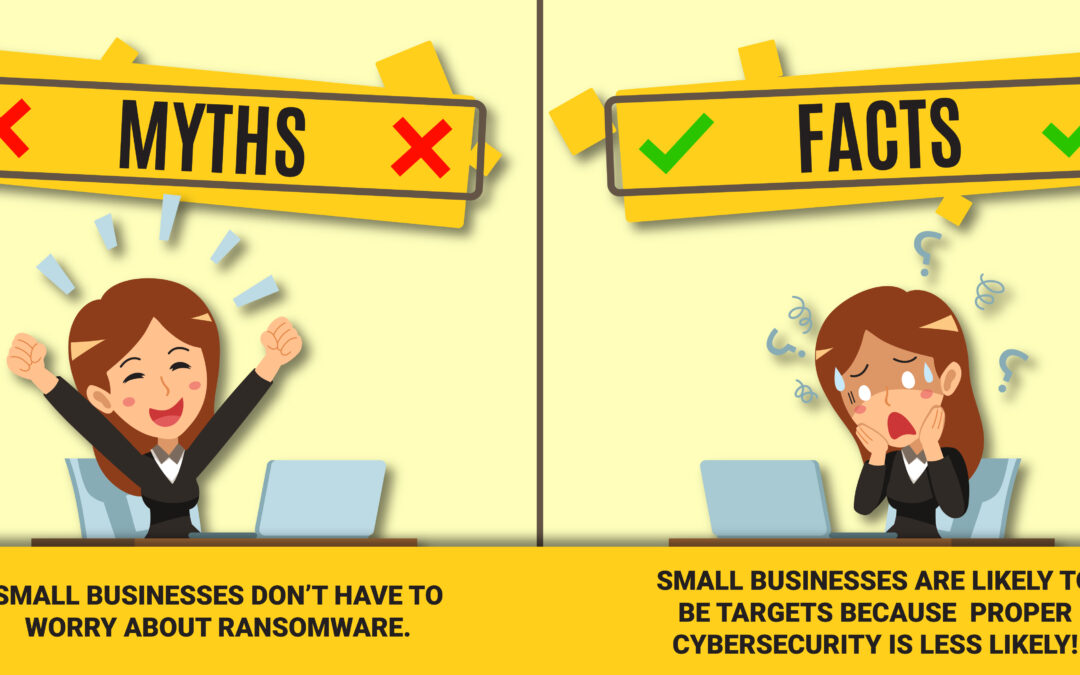
by Jason Ruediger | Jul 16, 2023
In today’s digital era, businesses rely heavily on technological infrastructure to drive growth and maintain competitiveness. As companies strive to enhance their IT capabilities, the demand for effective IT managed services near me has grown exponentially. In this comprehensive guide, we will explore the power of IT managed services and provide you with proven strategies to boost your business’s success. Whether you’re a small startup or an established enterprise, implementing these techniques will position your business for exponential growth and improved customer satisfaction.
1. Understand the Benefits of IT Managed Services Near Me:
– Enhanced operational efficiency: Outsourcing IT services to reliable providers allows businesses to focus on core competencies, optimizing productivity and workflow.
– Access to cutting-edge technology: By collaborating with IT managed services near you, your business can leverage the latest technology solutions without bearing the high costs associated with in-house infrastructure.
– Proactive risk mitigation: Professional IT service providers offer 24/7 monitoring, threat detection, and rapid response to ensure data security, compliance, and protection against cyber threats.
– Scalable solutions: As your business grows, IT managed services can easily adapt to your evolving needs, ensuring scalability and continuity of operations.
2. Assess Your IT Requirements:
Before embarking on your search for IT managed services near you, clearly define your business objectives and IT needs. Are you in need of comprehensive network management, security solutions, or cloud services? Determine your priorities to ensure you find the right IT partner that aligns with your specific requirements.
3. Research Local IT Managed Service Providers:
To truly unlock the power of IT managed services near you, conduct thorough market research to identify reputable service providers with a track record of delivering reliable solutions. Check online reviews, seek recommendations, and evaluate their range of services, certifications, and industry experience. Choose a provider with a solid reputation and expertise in your specific industry.
4. Clarity in Service Level Agreements (SLAs):
During the contract phase, clarity is key. Ensure that your chosen IT managed service provider clearly outlines the terms and conditions in a Service Level Agreement (SLA). The SLA should define the scope of services, response times, escalation procedures, and any other essential details that guarantee service reliability and adherence to performance targets.
5. Proactive Monitoring and Maintenance:
One of the most vital aspects of IT managed services is proactive monitoring and maintenance. Opt for a provider that offers continuous monitoring, real-time threat detection, patch management, and regular system updates to minimize any potential disruptions to your business operations.
6. Disaster Recovery and Business Continuity Planning:
Data loss, natural disasters, or unexpected events can significantly impact business continuity. Ensure your IT managed service provider includes robust disaster recovery and business continuity planning as part of their services. Regular backups, redundant systems, and a comprehensive recovery strategy will safeguard your critical data and minimize downtime.
7. Cybersecurity Best Practices:
Cyber threats are on the rise, and businesses of all sizes are vulnerable. Partner with an IT managed service provider that prioritizes cybersecurity best practices and deploys robust security measures such as firewalls, intrusion detection systems, encryption, and employee awareness training. Regular vulnerability assessments and penetration testing should be conducted to identify and address vulnerabilities proactively.
8. Scalability and Flexibility:
Your business needs may change over time, so it’s essential to select an IT managed service provider capable of scaling their offerings and responding to your evolving requirements. Whether it’s expanding your workforce or incorporating new software, ensure your provider can seamlessly adapt their services to accommodate your growth.
9. Transparent Communication Channels:
Effective communication is the cornerstone of successful IT managed services. Choose a provider that maintains transparent and frequent communication channels, promptly addressing your concerns, providing regular updates, and offering proactive suggestions for improvement.
10. Continuous Improvement and Optimization:
To truly optimize IT managed services near you, focus on continuous improvement and optimization. Collaborate with your provider to assess your IT infrastructure regularly, identify areas of improvement, and develop a roadmap for innovation. A forward-thinking approach will keep your business at the forefront of technological advancements, driving continuous growth and success.
Unlocking the power of IT managed services near you can transform your business and level up your technological capabilities. By embracing the strategies outlined in this comprehensive guide, you will position your business for long-term success, improved efficiency, and enhanced cybersecurity. Remember, the key to finding the perfect IT managed service provider lies in thoroughly assessing your needs, establishing strong partnerships, and embracing continuous improvement. Stay ahead of the competition by leveraging the expertise of local IT managed services near you.
Question: How can implementing IT managed services near me benefit my business?
Answer: Implementing IT managed services near you can benefit your business in several ways:
1. Enhanced operational efficiency.
2. Access to cutting-edge technology.
3. Proactive risk mitigation.
4. Scalable solutions that adapt to your business growth.

by Jason Ruediger | Jul 13, 2023
In today’s digital age, small businesses need to stay ahead of the game. Effective communication plays a pivotal role in achieving success. However, traditional analog telephone systems no longer suffice in meeting the demands of modern businesses. Enter Voice over Internet Protocol (VoIP) systems – a game-changer that can transform small business communication. In this article, we will explore the benefits of VoIP systems for small businesses and how they can revolutionize the way you connect and collaborate with clients and colleagues.
What are VoIP Systems?
VoIP, or Voice over Internet Protocol, is a technology that enables voice and multimedia communication over the internet. Unlike traditional phone lines, which rely on copper wiring, VoIP uses internet connectivity to transmit voice signals digitally. This transformation from analog to digital communication brings forth numerous advantages for small business owners, including cost savings, flexibility, and enhanced productivity.
Cost Savings for Small Businesses:
Lower Monthly Phone Bills:
- By leveraging the power of the internet, VoIP systems eliminate the need for expensive phone lines and traditional telecom infrastructure. This results in significant cost savings for small businesses.
- VoIP providers often offer affordable monthly plans tailored to the needs of small businesses, allowing for predictable budgets and reduced expenses.
International Calling Without the Hefty Price Tag:
- Traditional phone systems charge exorbitant rates for international calls. VoIP systems, on the other hand, utilize the internet as their communication medium, enabling businesses to make international calls at significantly lower prices.
- VoIP allows for more affordable long-distance and international communication, breaking down barriers and making expanding your business globally easier than ever.
Enhancing Small Business Productivity:
Unified Communications:
- VoIP systems integrate multiple communication channels into a single platform, enabling small businesses to streamline their operations and improve productivity.
- With VoIP, you can access voicemails, emails, faxes, and even video conferences all in one place, eliminating the need for separate systems and reducing time wasted switching between applications.
Mobility and Flexibility:
- VoIP empowers small businesses to break free from the constraints of physical office spaces. With the ability to make and receive calls using any internet-connected device, you and your team can work from anywhere, at any time.
- By embracing mobility, small businesses can increase efficiency, respond to client requests faster, and provide exceptional customer service, all while reducing overhead costs.
Reliable and Scalable Communication:
Business Continuity:
- Unlike traditional phone systems that are vulnerable to power outages, VoIP systems offer increased reliability and business continuity.
- With features such as call forwarding to mobile devices or alternative locations, voicemail-to-email transcription, and auto-attendants, small businesses can ensure seamless communication even during unforeseen circumstances.
Scalability and Growth:
- As your small business expands, so does the need for enhanced communication capabilities. VoIP systems can effortlessly scale with your business, accommodating growing numbers of users, remote employees, and multiple locations.
- Forget the frustration of lengthy installation processes – VoIP systems can be easily set up, ensuring that your focus remains on driving business growth rather than dealing with complex hardware installations.
Embracing VoIP systems is not just a technological upgrade; it is an investment in the future success of your small business. The benefits, including cost savings, improved productivity, and scalability, make it a smart choice for entrepreneurs looking to unlock efficiency and growth. So, why settle for outdated analog systems when you can harness the power of VoIP and revolutionize your small business communication? Upgrade to VoIP today, and experience the transformative impact it can have on your business.

by Jason Ruediger | Apr 14, 2023
In the digital age, where businesses are increasingly dependent on technology, cybersecurity has become a critical concern. One aspect of cybersecurity that often gets overlooked is penetration testing, particularly continuous penetration testing. This article aims to shed light on the importance and benefits of continuous penetration testing for businesses.
What is Penetration Testing?
Penetration testing, often referred to as ‘pen testing,’ is a simulated cyber attack against your computer system, designed to uncover exploitable vulnerabilities. These vulnerabilities could exist in operating systems, services and application flaws, improper configurations, or risky end-user behavior. Such assessments are also useful in validating the efficacy of defensive mechanisms and end-user adherence to security policies.
In the ever-evolving landscape of cyber threats, it’s not just a luxury but a necessity for businesses to understand their digital weaknesses. Hence, penetration testing becomes a critical component of a comprehensive security program. But what does it mean to have continuous penetration testing, and why is it so important? Let’s delve deeper into these questions in the following sections.
Why is Continuous Penetration Testing Important?
Penetration testing is a crucial part of any cybersecurity strategy. It provides businesses with a clear picture of their security posture by identifying vulnerabilities before malicious hackers do. By simulating real-world attack scenarios, businesses can understand how an attacker could potentially breach their systems. This proactive approach allows organizations to fix vulnerabilities before they can be exploited, reducing the risk of data breaches and potential financial and reputational damage.
Moreover, penetration testing is not just about finding security weaknesses. It also tests an organization’s ability to respond to and recover from attacks, providing valuable insights into incident response and crisis management procedures. In essence, penetration testing is a comprehensive method for businesses to assess their overall cybersecurity health.
The Benefits of Continuous Penetration Testing
While occasional penetration testing is beneficial, continuous penetration testing takes cybersecurity to a whole new level. Here’s why:
Year-round Protection: Cyber threats don’t operate on a schedule. They can strike at any time. Continuous penetration testing ensures that your defenses are always up to date, providing year-round protection against the latest threats. It’s like having a 24/7 security guard for your digital assets.
Cost-Effective: While it may seem like a significant investment, continuous penetration testing can save businesses money in the long run. By identifying and fixing vulnerabilities early, businesses can avoid the high costs associated with data breaches, including regulatory fines, remediation costs, and reputational damage. It’s a proactive investment in your business’s long-term security and reputation.
Consistent and Reliable: Regular testing leads to consistent and reliable security measures. It ensures that your defenses are always at their strongest, reducing the likelihood of unexpected breaches. It’s like regular health check-ups, but for your business’s cybersecurity health.
Detects Changes That Could Introduce New Vulnerabilities: Businesses are dynamic, with new applications, systems, and technologies constantly being introduced. Each change can potentially introduce new vulnerabilities. Continuous penetration testing ensures that these changes don’t compromise your security posture, keeping your defenses robust and up-to-date.
Helps Prevent Unexpected Security Breaches: Continuous testing can help prevent unexpected security breaches by identifying and fixing vulnerabilities before they can be exploited. This proactive approach can save businesses from the devastating effects of a successful cyber attack. It’s about staying one step ahead of potential attackers.
Assists in Compliance with Industry Standards and Regulations: Many industries have standards and regulations that require regular penetration testing. Continuous testing helps businesses stay compliant, avoiding penalties and demonstrating to customers and partners that they take cybersecurity seriously. It’s a testament to your business’s commitment to security and trust.
Question and Answer Section
Question: I’m a small business owner. Is continuous penetration testing really necessary for me?
Answer: Absolutely. In fact, small businesses can be particularly vulnerable to cyber attacks as they often lack the resources and expertise to implement robust security measures. Continuous penetration testing is a proactive way to identify and address vulnerabilities before they can be exploited, helping to protect your business, your customers, and your reputation. Regardless of the size of your business, cybersecurity should be a top priority.
In the ever-evolving digital landscape, continuous penetration testing is no longer a luxury but a necessity. It provides businesses with a proactive approach to cybersecurity, offering year-round protection, cost-effectiveness, consistency, and compliance with industry standards. By identifying and addressing vulnerabilities before they can be exploited, continuous penetration testing can save businesses from the devastating effects of a successful cyber attack.
Remember, cybersecurity is not a one-time event but an ongoing process. With continuous penetration testing, you can ensure that your business is always one step ahead of the cyber threats. After all, in the world of cybersecurity, the best offense is a good defense.

by Jason Ruediger | Jan 31, 2022
Everyone wants to go phishing.
You are very much aware that your company or organization is at risk, every minute of the day, from cyberattacks, malware, ransomware, and even benign errors that can put your data at risk. Even a failed backup procedure could mean a loss of critical company and customer data. In today’s blog we’re just going to review one of the most common methods that bad actors use to try to gain access to your data. Phishing. Phishing isn’t a particular type of malware or virus that attacks your data. Instead, it refers to the tools cyber criminals use to get access to your data. Phishing refers generally to the bag of tricks they use to break into your house.
In phishing attacks, cybercriminals generally send a web link that is disguised to look genuine, and prompt the receiver to share information that will then be misused. For example, an email may be sent to you that looks as though it came from your bank or the IRS announcing a tax refund that your business is eligible to receive. You may be asked to log into your bank account or a fake IRS site and enter your bank details to receive the refund or download a receipt. The cybercriminals will have access to any details you share and later use it to clear out your bank account.
Phishing links may also lead to clone websites. Clone websites, as the name suggests, are websites that look strikingly similar to original websites, but are obviously not the same and are controlled by cybercriminals and used to steal data from unsuspecting victims. Here are a few tips to help you identify clone websites and steer clear of them.
If you receive an email with a link to a familiar website asking you to log into the site or enter your personal information, cross check the URL. Check the spelling and domain, for example, www.amazon.com is the right URL, whereas a clone website may have an URL that looks similar but is not the same. An example would be www.amaazon.com or www.amazon-offer.com Another thing you can do is, always type the URL you intend to visit. For example, if you are being asked to log into your bank account, type your bank’s website address instead of clicking on the link they provided to you in the email.
Sometimes, phishing attacks can be manual as well, meaning, instead of asking you to enter your personal information in a website or a form, the cybercriminal may pose as someone you know and send you an email from an email address that looks authentic and try to get money or personal information from you. Such attacks usually happen if your network or that of your recipient’s has been compromised in a hacking attack, whereby the cybercriminal has some information that they can use to make their messaging sound genuine.





Recent Comments